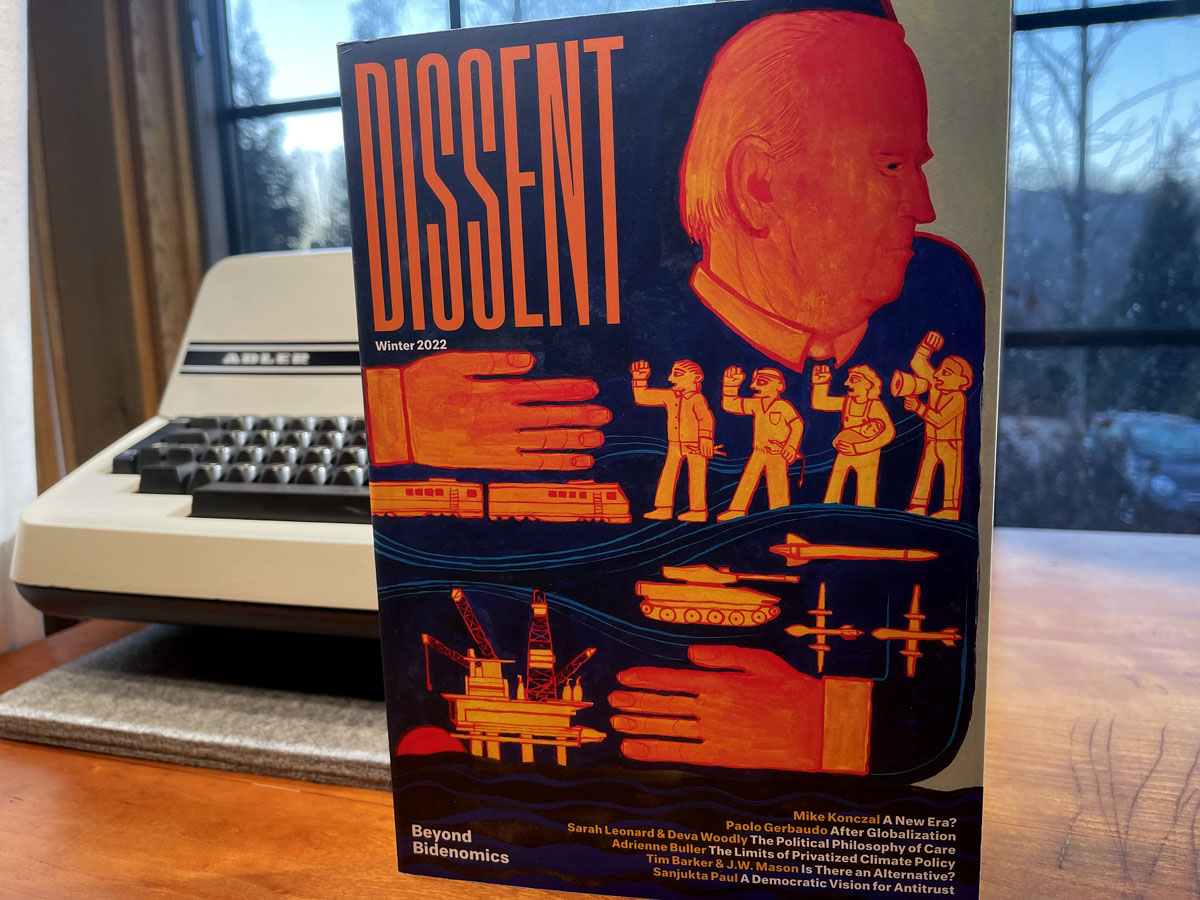
Those of us who identify with the left are, to a remarkable degree, intellectually on our own. We read a lot, certainly, including the output of liberal and even leftist pundits. We may be members of the Democratic Party’s coalition, but the Democratic coalition includes a broad range of political interests, and thus the party makes no effort to tell us what to think. A few months ago I was wondering: Is there any publication that is smart enough and wise enough to make being a leftist a little less lonely? I had subscribed to The Nation for a while, but I quickly grew tired of its low-information, often strident, and heat-of-the-moment articles. I don’t even check their web site anymore. The biggest portion of political commentary (or propaganda, if you wish), both on the left and the right, is aimed at feeding our anger for the purpose of keeping us engaged.
We leftists are certainly capable of forming our own opinions about the train of daily political dramas. We can reason from our moral and political values (fairness, justice, caring, equality). And we may subscribe to well developed philosophical theories (for me that would be John Rawls’ A Theory of Justice). But each of us has limited knowledge, and taking a strong position on a particular issue had best be done with a reasonably good knowledge of that issue. That is the great weakness of the professional punditry. Day after day, though they are experts on nothing, they have to keep cranking it out. Members of think tanks (such as the Brookings Institution) can do a somewhat better job, because they are expected to spend some time on research, and they have areas of expertise. If you follow a serious magazine such as The Atlantic (which is not a leftist magazine by any means), you may find that the weakest articles are written by the staff (who are cranking it out), and the strongest articles are written by people who write only about subjects where they have some expertise and have done the research.
So then, what if there was a magazine with a staff of only four (and thus with no one cranking out articles), a magazine in which all the articles are written by the leading academics in a given area — people whose profession is not punditry but research and expertise. Dissent magazine is that type of magazine.
That I was not familiar with Dissent magazine and had to go looking for it is not terribly embarrassing. Its circulation is only about 5,000, maybe less. I think it would be safe to say that it is an elite publication. It is published by the University of Pennsylvania Press. It’s a quarterly, with a subscription price of $30 a year. The magazine was founded in 1954. It has a history of punching above its weight, if you measure the weight by the number of subscribers. When Dissent observed its 60th birthday in 2013, there were flattering articles: “A Lion of the Left Wing Celebrates Six Decades“, in the New York Times; and “A Modest Utopia: Sixty Years of Dissent,” by George Packer in the New Yorker. If you are a leftist, you will not be embarrassed by having a copy of it seen on your desk.
The caricature of leftist academic writing and thinking is that it’s opaque and loaded down with postmodern jargon, with a lingering Marxist fetish. With Dissent magazine that is not the case. The focus of the winter 2022 issue is “Beyond Bidenomics.” Except for an article on the Chilean economy, “The End of Neoliberalism in Chile?”, I read it cover to cover. There are advantages, I think, for a quarterly publication: altitude, enough altitude to provide some perspective and to stand clear of the daily media circus. Even monthly publications have to do some cranking. And I suspect that one reason for the narcissistic vacuousness of the way-overrated New Yorker is that the New Yorker has to crank that stuff out once a week.
You can check on Dissent magazine on its web site.
